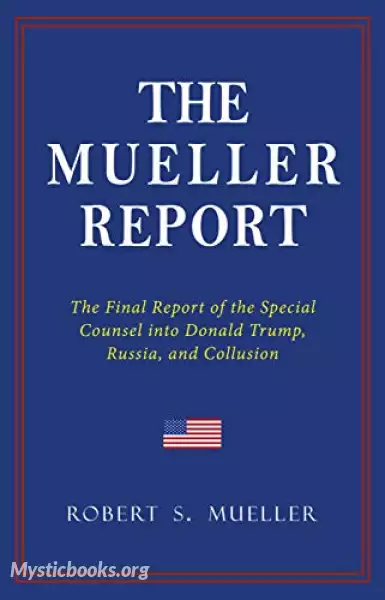
The Mueller Report
'The Mueller Report ' Summary
The Mueller investigation was created by Deputy Attorney General Rod Rosenstein. Former FBI director Mueller was chosen to lead it due to a shortage of senate-confirmed U.S. attorneys. The dismissal of James Comey was a factor in the decision to use a Special Counsel. The Mueller investigation took over the FBI's investigation, which the FBI had named Crossfire Hurricane.
According to its authorizing document, the investigation's scope included allegations of "links and/or coordination" between the Russian government and individuals associated with the Trump campaign. Mueller was also mandated to pursue "any matters that arose or may arise directly from the investigation." The probe included a criminal investigation which looked into potential conspiracy and obstruction of justice charges against President Trump and members of his campaign or his administration.
The investigation was officially concluded on March 22, 2019. The report concluded that the Russian Internet Research Agency's social media campaign supported Trump's presidential candidacy while attacking Clinton's, and Russian intelligence hacked and released damaging material from the Clinton campaign and various Democratic Party organizations. The investigation "identified numerous links between the Russian government and the Trump campaign", and determined that the Trump campaign "expected it would benefit electorally" from Russian hacking efforts. However, ultimately "the investigation did not establish that members of the Trump campaign conspired or coordinated with the Russian government in its election interference activities". Mueller later said that the investigation's conclusion on Russian interference "deserves the attention of every American".
On potential obstruction of justice by President Trump, the investigation "does not conclude that the President committed a crime", as investigators would not indict a sitting president per an Office of Legal Counsel opinion. However, the investigation "also does not exonerate" Trump, finding both public and private actions "by the President that were capable of exerting undue influence over law enforcement investigations". Ten episodes of potential obstruction by the president were described. The report states that Congress can decide whether Trump obstructed justice, and has the authority to take action against him. Attorney General William Barr and Deputy Attorney General Rod Rosenstein, who had authorized the Mueller probe, decided on March 24, 2019, that the evidence was insufficient to establish a finding that Trump committed obstruction of justice. Upon his resignation on May 29, 2019, Mueller stated that: "the Constitution requires a process other than the criminal justice system to formally accuse a sitting president of wrongdoing". In July 2019, Mueller testified to Congress that a president could be charged with obstruction of justice (or other crimes) after he left office.
Book Details
Language
EnglishOriginal Language
EnglishPublished In
2017-2019Genre/Category
Tags/Keywords
Authors
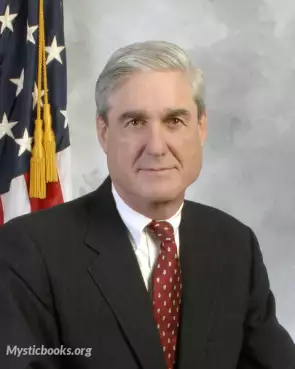
Robert Mueller
United States
Robert Swan Mueller III is an American lawyer and government official who served as the sixth director of the Federal Bureau of Investigation (FBI) from 2001 to 2013. A graduate of Princeton Universit...
Books by Robert MuellerListen/Download Audiobook
- Select Speed
Related books

The Spirit of Youth and the City Streets by Jane Addams
It is here presented in book form in the hope that it may prove of value to those groups of people who in many cities are making a gallant effort to...
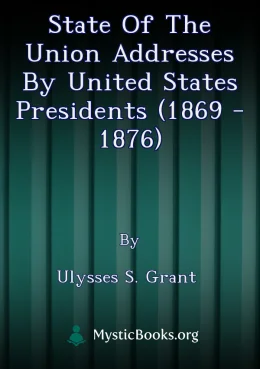
State of the Union Addresses by United States Presidents (1869 - 1876) by Ulysses S. Grant
This album contains recordings of State of the Union addresses from Ulysses S. Grant, the 18th President of the United States. These addresses provide...
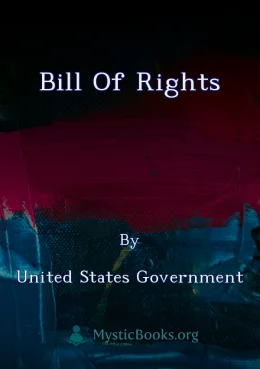
Bill of Rights by United States Government
The Bill of Rights are the first ten amendments to the United States Constitution, and were ratified on December 15, 1791.
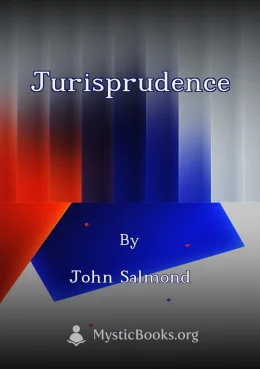
Jurisprudence by John Salmond
This book provides a comprehensive and systematic exposition of the fundamental principles of jurisprudence. It is written in a clear and concise styl...
Present Crisis by James Russell Lowell
James Russell Lowell's "The Present Crisis" is a powerful and stirring poem that reflects the anxieties and moral dilemmas of the United States on the...

They Who Knock at Our Gates by Mary Antin
In "They Who Knock at Our Gates," Mary Antin, a Jewish immigrant who successfully assimilated into American society, tackles the complex issue of immi...
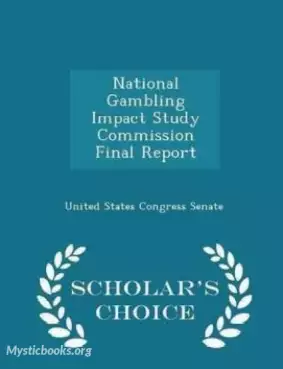
National Gambling Impact Study Commission Final Report by National Gambling Impact Study Commission
The National Gambling Impact Study Commission was given the task of conducting a comprehensive legal and factual study on the social and economic impl...
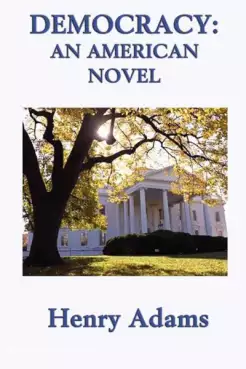
Democracy: An American Novel by Henry Adams
Democracy is a novel about political power, its acquisition, use and abuse. It is set at the beginning of a new administration, with the election camp...
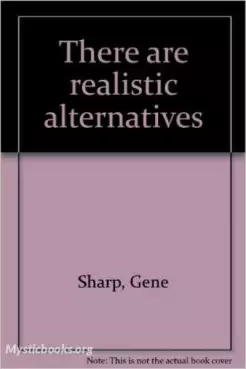
There Are Realistic Alternatives by Gene Sharp
Violence in society and politics, whether in the form of war, terrorism, dictatorship, oppression, usurpation, or genocide, is widely recognized as a...
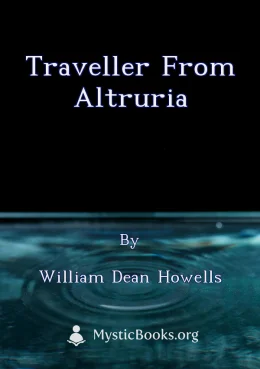
Traveller from Altruria by William Dean Howells
A visitor from the utopian island of Altruria comes to the United States to experience everyday life in America firsthand and to see for himself how t...
Reviews for The Mueller Report
No reviews posted or approved, yet...